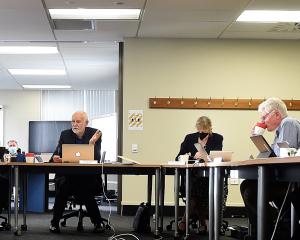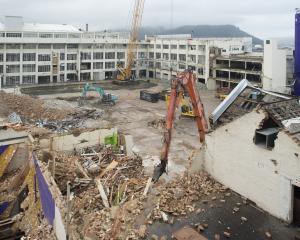Health bosses have ordered an urgent investigation into how an Otago woman was wrongly diagnosed with cancer and had her breast removed.
The woman's test results were switched with another patient who has since been given the heartbreaking news that she has breast cancer.
The Herald on Sunday understands the women, both from the Otago region, had biopsies after mammograms revealed suspicious lesions.
Their specimens were sent to Southern Community Laboratories, which tested the tissue samples for signs of cancer.
As a result, one of the women was diagnosed with breast cancer and subsequently had a breast removed. The other was informed of a negative result. They were later told the specimens had been switched and both patients had been misdiagnosed.
Southern District Health Board, already under fire over delays in cancer diagnosis, said a review into testing procedures was underway.
The lead surgeon of BreastScreen Aotearoa at the Southern DHB, Michael Landmann, described the botch-up as "sinister" but would not go into details about the case.
"[The review] will come up with a result that will change something in pathology, such as how the labels are stuck on, or something like that," Landmann said.
"This is a serious, sinister and very important thing to check."
However, Landmann said the error was "unusual" and had slipped through the cracks of what were normally safe and accurate processes.
"The fact that millions of people get through without any of these things happening is already an indication of how far down the track we are on making things safe."
He said women were asked to check their specimen before it went to the laboratory to help avoid misdiagnosis errors.
"These women would have had the specimen in front of them and they would have confirmed that the label on the specimen was their name. It then would have gone to the lab, so the women can't make it any safer themselves."
Dunedin School of Medicine associate professor Brian Cox was baffled over how the error occurred.
"There needs to be a high level of accuracy in what goes into the database system," Cox said.
"When you're screening, there is a large number so the accuracy has to be at a very high level."
Southern Community Laboratories pathologist Peter Fitzgerald said the laboratory had written a report to help the Southern District Health Board review but refused to comment further.
ACC lawyer Peter Sara advised both women to lodge treatment injury claims with ACC for compensation.
The DHB faced criticism over delays in diagnosing cancer in 28 women between 2007 and 2010.
Chief medical officer Dick Bunton said a review involving three institutions was expected to take about another one to two weeks.
Mercy Hospital chief executive Richard Whitney said both his and Dunedin Hospital had "an interest" in one of the women.
"We have a large number of patients that go through the institution every year and on occasion there are issues that come up."
- Chloe Johnson/Vaughan Elder
Advertisement













